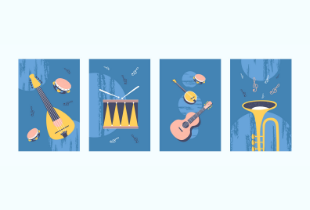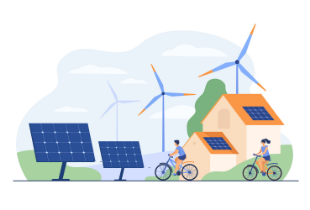See Where the Wind Blows You: My CEL Story
 Written by: Ting Hsueh
Written by: Ting Hsueh
Photo by: pch.vector on Freepik
People who worked with me have always told me that I am methodical and meticulous. I took this as a compliment because I took pride in planning everything down to the last detail and following my plan carefully. This is what I understood research to be – developing a detailed plan and executing perfectly. However, as I approach the end of my undergraduate career and dive deeper into the world of research, I have started to question whether these are indeed the hallmarks of a great researcher. My experience this year in Community Psychology (Psych3317E) has further challenged my assumptions.
As someone passionate about community service and applied psychology, I got the best of both worlds through Community Psychology, a full-year project-based Community Engaged Learning (CEL) course. I was thrilled to be partnering with Youth Opportunities Unlimited (YOU) – an organization that offers at-risk youth support to help with a smooth transition to adulthood. YOU does this by helping youth build skills, confidence and independence through goal-setting. Currently, youth clients keep track of their goals on a piece of paper given to them after an appointment, which is not interactive and easily lost. Additionally, monitoring youth’s objectives across the organization can be difficult for staff, making coordination and personalized support difficult.
To address these issues, two groupmates and I collaborated with a group of Computer Science students to develop a goal-tracking website to help youth and the staff they work with set and track youth’s progress towards meaningful goals. YOU had hoped to complete this project last year, but no Computer Science students had selected this for their Capstone course project. Feeling that our group was entrusted with bringing the project to life, I remember thinking “We must complete the project.”
To ensure that our group finished the project on time, I called upon my strength as a planner in the first semester and created a list of long-term objectives and short-term tasks and timelines for the entire academic years. However, the project didn’t unfold according to plan. Towards the end of our project, the focus of our project shifted drastically because the scope of the project is too large and the Computer Science students couldn’t finish the coding, so the website is unable to be published this year. With most of the plan changed, it was very challenging for me to ‘wing it’. Without my plan, I felt like I was driving on a winding road without a GPS, uncertain about which path to take to get to my destination and, at the same time, worrying about running out of fuel before arriving. In other words, I was very concerned about whether we could deliver what we promised to our community partner before the academic year ended.
Upon reflecting on my discomfort, I realized that my need to be meticulous and methodological stemmed from my desire for control and uneasiness with uncertainty. I experienced an epiphany when I realized that the desire for certainty and control was antithetical to being a scientist. As researchers, our job is to investigate the unknown and revise our theories as new information presents itself. Good researchers embrace uncertainty – they don’t avoid it. Research – especially in an applied setting – need not, and cannot, be rigid and fixed. It should be fluids. It is important to be flexible and allow regular feedback from our community partners to guide our work.
With this realization in mind and the support and guidance from our partners, I began to adapt to and embrace changes. Instead of aiming to complete the entire website this year, we redirected our aim to keep a detailed documentation of our work this year to ensure a smooth hand-off to the students next year to continue this project. After communicating the project update to our partners, they told us they were proud of all the work we’ve accomplished this year and encouraged us to feel the same.
The CEL experience was, without a doubt, one of the most enriching experiences I have had in my time at Western University. Psych 3317E allowed me to engage with the London community, contribute to a meaningful project, work with like-minded people, and reflect on my views and approaches. It also helped me realize that flexibility is not antithetical to scientific rigor. Going forward, I will still make plans but will recognize that plans are not set in stone and stringent; plans can change due to evolving circumstances (or new information). Instead of feeling uneasiness when plans change, I can now appreciate that change is natural and necessary for a project’s development.
Check out more EL Storytelling blogs:

Prescription for Nature: ParkRX in The Heart of Georgian Bay
Learn about the power of nature as Mais reflects on their CEL experience.

Music Education in the Community
Learn about the power of nature as Mais reflects on their CEL experience.

A Guide to my Journey with The City of London and Class 3377
Read about Elise's experience working with the city of London.
Published on

